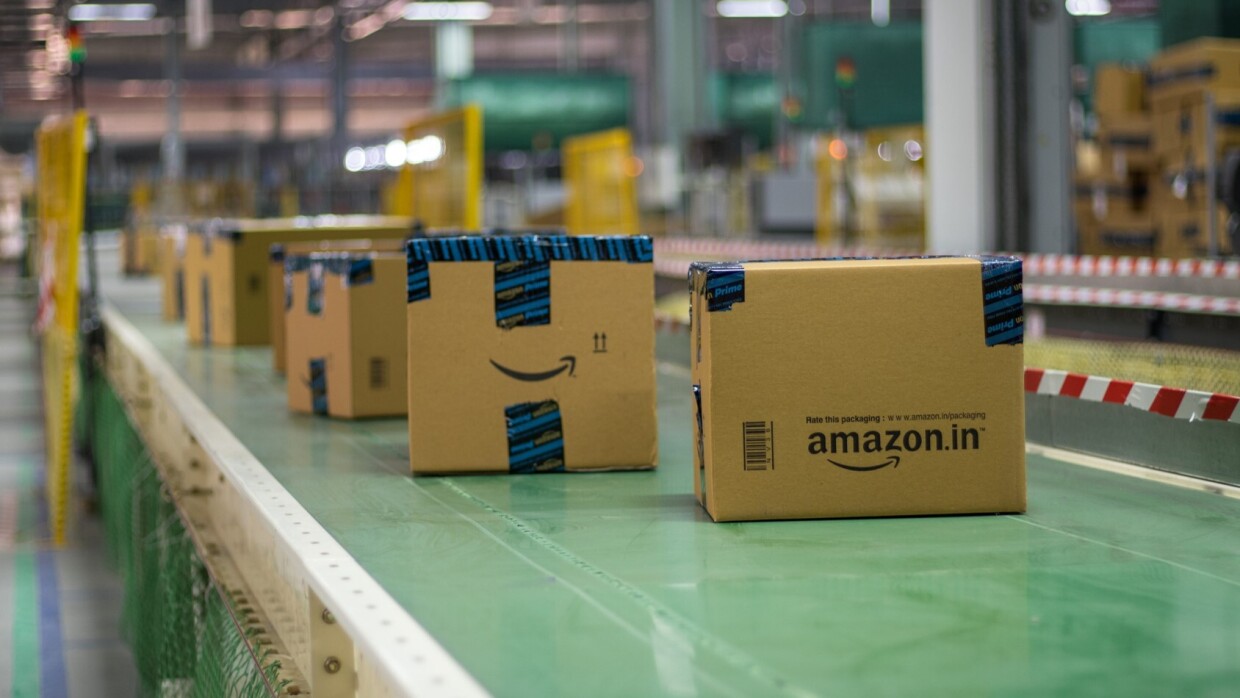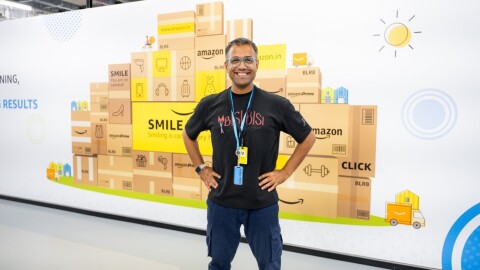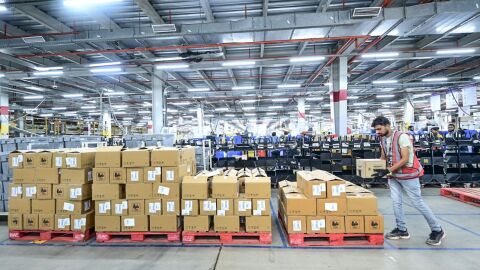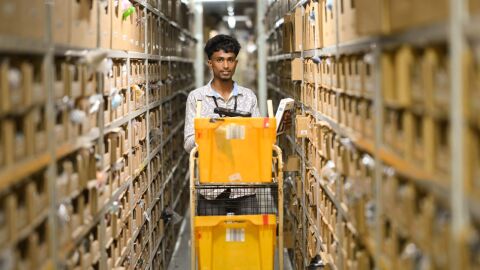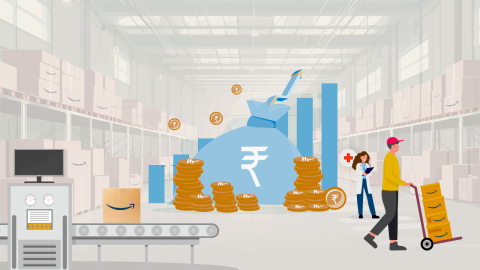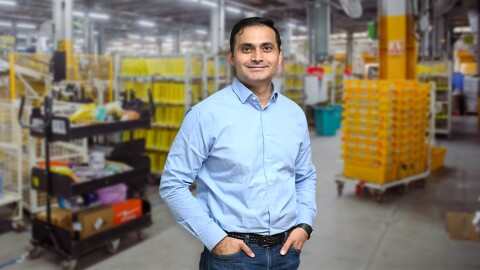As the world is rallying to preserve the health of our home, planet Earth, Amazon is leading the brigade with a plethora of sustainability efforts globally and locally, ranging from The Climate Pledge – of which we’re the first global co-signee - to India-first initiatives like our commitment to eliminate single use plastic from the Amazon India Fulfilment network by June 2020, Packaging Free Shipments, and other initiatives by India Operations (INOPS).

To better understand Amazon INOPS’ efforts to contribute to a greener environment, we spoke to Prakash Kumar Dutta, Director - INFC & Supply Chain Operations, Amazon India.
Prakash, why is sustainability critical for us as a company?
With our scale, available resources, and the size of our ecosystem (sellers, customers and our own operations network that connects the two), we have the potential to make a large impact on not only the nation, but the entire world.
Moreover, we have heard our customers’ concerns about the environment and of course, we are obsessed about what’s important to them. For us as a company, being committed to and invested in sustainability is a triple win – it’s good for our customers and communities, good for the planet, and good for business, too.
That’s why we are trying to pioneer in practices, processes and technology that will minimize the use of natural resources, and environmental costs like carbon emissions/solid waste generation.
Can you give us some instances of how we've worked customer backwards and made changes in this regard?
Two examples come to mind right off the bat. When we noticed that the trend of buying guitars online started picking up, we had to do something about the packaging because at the time they were being shipped in TV boxes, which resulted in a high amount of packaging waste. We quickly worked with brands and suppliers to get them to create special packaging that would be e-commerce friendly. Now, you see guitars shipping from our FCs in the least amount of necessary packaging. This works better for our customers and leads to less waste as well.
Our grocery & pantry offerings have gotten very popular with customers. Naturally, because of this increased frequency, customers were also having to deal with more packaging waste. We saw an opportunity to eliminate boxes altogether and move to totes. Now, receiving pantry orders in the orange and blue totes is a common sight in many customers' households.
We've heard of numerous changes to Amazon packaging in the recent past. Can you give us a brief overview of our sustainability efforts with respect to packaging?
There are quite a few things happening, and there’s more to come still.
We recently announced our commitment to eliminate single use plastic by June 2020, which is one of our biggest efforts. We've been working on this for quite a while now, which has led to our packaging now having very little single use plastic (<7%), and the number is reducing every day.
We’ve already replaced all plastic-based cushion pads with paper-based ones, and our packaging material (in the form of corrugate boxes and paper cushions) is 100% recyclable.
We’re also replacing plastics like air pillows and bubble wrap with “paper cushions.” This fully recyclable packaging solution has been launched in select Fulfilment Centres (FCs) and will expand to all India FCs by the end of 2019.
From September 2019 onwards, we've been collecting plastic, equivalent to all of the plastic packaging material used by the Amazon Fulfilment network in the country.
Under the India-first Packaging Free Shipments (PFS) program, more than a fifth of our FC shipouts now have reduced or no packaging. In cases where packaging cannot be eliminated, we’re using Machine Learning (ML) and process automation to reduce packaging year over year.
Are there other efforts also being undertaken by INOPS to contribute to a better environment?
Yes! In terms of green energy, 10 large FCs and Sort Centres in India have rooftop solar panels installed. These are estimated to reduce carbon dioxide emissions by about 12k tonnes by 2020. We’ve also donated solar systems 19 government schools and a planetarium and brought them on board the green energy movement.
We’ve invested in advanced building management systems that ensure lighting and climate controls are used only when the buildings are occupied.We are optimizing our supply chain by placing products closer to customers and shipping more orders in the same box than we were earlier. This helps significantly reduce transportation and packaging footprint. We've also invested in advanced technology to help us get better at this every year.
Many of our FCs have water recycling capabilities and all new infrastructures we build will have this from the get-go.
Learn more about INOPS’ sustainability initiatives in this article, How clean energy and recycled water are powering operations in India, and in this Day One blog.



